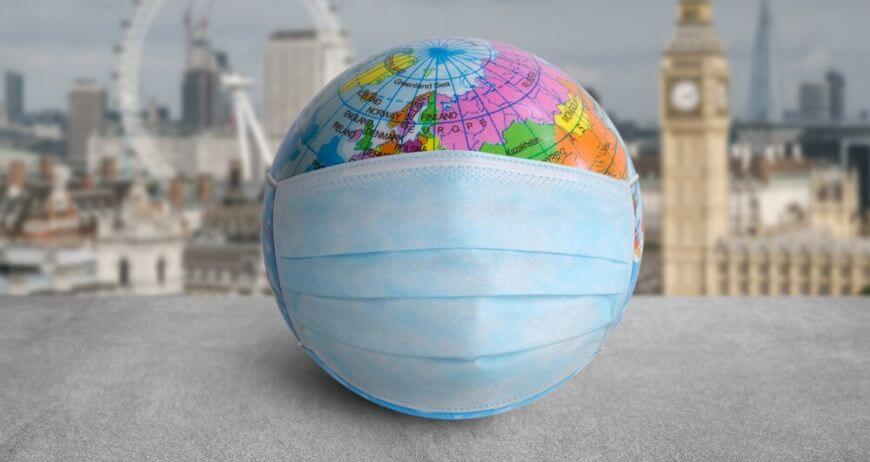Sarah Richardson, Group Editor, Research Professional News
The COVID-19 pandemic has led to a surge of research into coronaviruses, as researchers across the world try to understand both how today’s pandemic can be battled, and how a similar crisis could be prevented in future.
But despite the pandemic’s global nature, a paper published last month in the journal PLOS One has highlighted a concerning drop in the participation of developing nations in such research.
Caroline Wagner, a researcher at Ohio State University in the US, and her colleagues studied data on more than 10,000 published articles and preprints on coronaviruses, including COVID-19 and the previously known SARS and MERS viruses.
As we report on Research Professional News, the research into published articles revealed a trend towards smaller partnerships involving researchers from fewer countries, and less participation in the field by developing countries. Authors from these countries were involved in producing only 11 per cent of articles since COVID-19 emerged, compared to 15 per cent before.
Speaking to Research Professional News, Wagner, who is the Milton and Roslyn Wolf chair in international affairs at Ohio State University, said that the trend towards smaller collaborations made sense in the context of the urgency of research and restrictions on travel, as researchers would tend to turn to established partnerships.
“When you’re rushing to get something out you need to work with people you already know because it’s harder to communicate at a distance—you don’t know a person’s voice inflections, their facial features,” she said. But a trend towards narrower research partnerships raises important questions over access to vital coronavirus research.
Open sharing of papers and data is one way of addressing this problem. As Wagner put it: “The challenge is to ensure broader, more equitable dissemination of knowledge, so that’s where I see a call to action.”
There is already a real danger that the narrowing of partnerships to the exclusion of researchers from developing countries will be exacerbated as the world moves through the current crisis.
The prospect of deep recession in the Global North has already put the future of funding for research partnerships with the Global South under pressure—in the UK, researchers are bracing in expectation of cuts to two research funding programs paid for through the country’s overseas aid budget.
Meanwhile, similar economic pressures in the Global South have already led South Africa’s government, for example, to announce cuts of 16 percent to its science department’s budget this year, provoking outcry from the nation’s researchers.
Today’s biggest challenges—health, climate change, population pressures—affect all nations, and the research capacity of the Global South is vital to tackling them.
These early warning signs should be of concern to researchers—and research policymakers—the world over.
COVID-19 Global News Round Up
Here are the other stories making headlines in COVID-19 research policy and funding, from our team of journalists at Research Professional News.
Worldwide
More than 150 countries could join a global initiative for equitable access to COVID-19 vaccines, the World Health Organization has announced.
A global group of funders has outlined principles meant to guide support for R&D into both COVID-19 and future pandemics—focusing in particular on places with fewer resources.
Scientists around the world are downbeat about their post-coronavirus careers, according to a flash survey by the Organisation for Economic Cooperation and Development, with women concerned in particular.
USA
Senior Democrat senators published a $25 billion plan that aims to ensure all US citizens can get access to a safe and effective vaccine against COVID-19.
US President Donald Trump has provoked widespread criticism from global leaders in health and academia by formally notifying the United Nations that he would withdraw the US from the World Health Organization.
Europe
The European Commission has praised governments over their use of EU cohesion funding to tackle the COVID-19 pandemic. And the Commission is offering up to €100,000 to set up innovation partnerships that aim to aid the economic recovery of EU regions and industries hit hardest.
The European Commission has launched a manifesto for COVID-19 research, asking organisations and individuals—in particular beneficiaries of EU grants—to make their results accessible and usable.
The Europe PMC online platform for accessing life-sciences research papers has begun offering access to the full text of COVID-19 preprints—papers that have not yet been peer-reviewed or accepted for full publication.
Organisations representing young researchers and universities have published updates setting out areas of ongoing concern stemming from the COVID-19 pandemic, and potential future developments that need to be planned for.
The European Parliament has called for the EU to do more to protect public health in its member countries in the wake of the COVID-19 pandemic, including by supporting more joint health research.
Universities have urged the EU to help them develop equitable programs that blend on-campus and virtual learning as they prepare for a future shaped in part by the pandemic.
UK
Funders UK Research and Innovation and the National Institute for Health Research have jointly invested £4.3 million in six projects aimed at explaining and mitigating the disproportionate death rate from COVID-19 among people from black, Asian and minority ethnic backgrounds.
The chair of an influential data analytics group has called for urgent access to data from the early stages of the UK COVID-19 epidemic to plan for a potential second wave of infections in winter.
The government’s chief scientific adviser has admitted that the government’s Scientific Advisory Group on Emergencies “definitely made a mistake” on transparency in the early days of the pandemic. Meanwhile, top scientists have blasted the UK government’s approach to testing and over-reliance on modelling in the early stages of the pandemic.
At least 13 universities are at risk of going bust without a personalized government bailout, while COVID-19 losses across all universities could reach around £19 billion, according to an analysis by the Institute for Fiscal Studies.
Cancer Research UK has announced plans to slash its annual research expenditure following the “devastating impact” of COVID-19 on its fundraising income.
The independence of government scientific advisers must be preserved, a member of the Scientific Advisory Group for Emergencies has said.
An influential group of MPs has called for tuition fees to be scrapped for some nurses rushed into the fight against COVID-19 and for “much larger” bursaries to be introduced.
Australia
Australia is facing a long-lasting economic crisis as a result of COVID-19 impacts, and universities must prepare graduates for a difficult and uncertain job market, federal education minister Dan Tehan has said.
The COVID-19 pandemic has exposed the flaws of corporate university systems that have encouraged an aggressive pursuit of international students and cuts to full-time teaching staff, according to a statement by a group of regional university academics.
Australia’s state and federal governments should promote the country’s universities as “open for international students” in 2021 as part of a national COVID-19 recovery plan, a Melbourne academic policy think tank has said.
The University of Wollongong has reached agreement with national and state unions over a two-year job-saving plan that would defer salary increases and rule out forced redundancies.
The University of New South Wales in Sydney is to axe 493 full-time jobs to meet a $370 million budget shortfall caused by the impact of COVID-19 on international student enrollments.
Africa
Budget cuts caused by the coronavirus pandemic will have an “enormous impact” on research in South Africa, the head of the country’s universities umbrella organization has said.
South Africa’s pandemic budget cuts—including thousands of postgraduate and PhD grants, hundreds of research grants, and the National Science Week—were unveiled in a marathon parliamentary committee session on 15 July.
South Africa’s National Coronavirus Command Council must seek the advice of researchers and scientists so the COVID-19 response does not impede progress on other diseases affecting the country, the national academy has warned.
The annual Science Forum South Africa will not be cancelled because of the coronavirus epidemic, the minister of higher education, science and technology has said.
The coronavirus pandemic will have a “substantial impact” on South African universities, with infrastructure projects especially vulnerable, the higher education minister has said.










